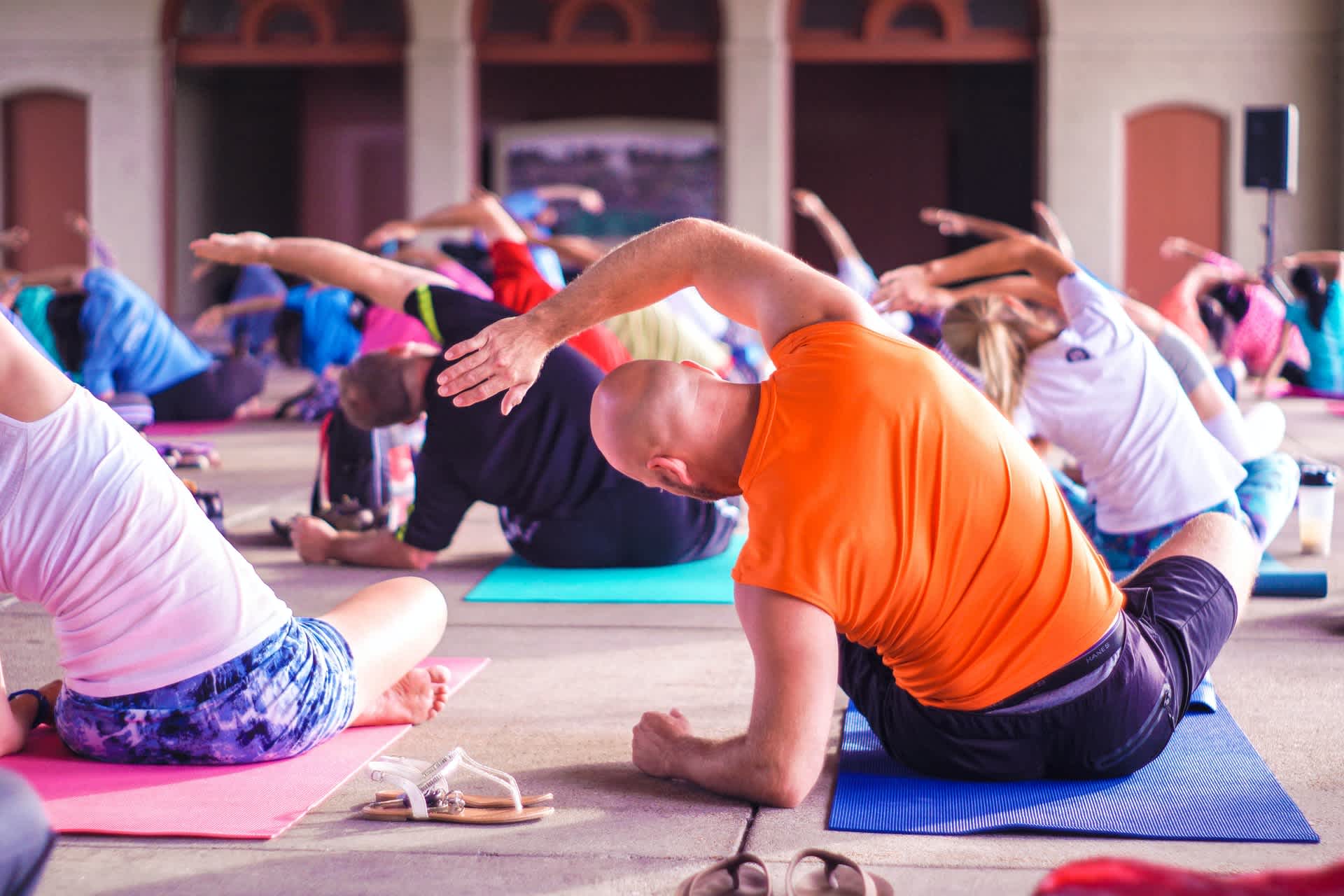If you’re interested in becoming a yoga instructor, either as a full-time career, or integrating it into your current healthcare practice, you might have questioned how long a yoga qualification takes. In this article, we discuss how long various yoga qualifications can take, as well as answer some other questions that you might have.
So, how long do yoga qualifications take? Yoga qualifications that are approved and accredited by professional bodies typically take around 200 hours of study time for a level 3 qualification, and up to 400 hours for more advanced courses. This usually equates to around 3-5 months of study, but this will differ by full and part-time courses.
Read on to learn more about yoga qualifications with Breeze Academy.
How Long Does it Take to Become a Qualified Yoga Teacher?
The length of time it takes to become a qualified yoga instructor depends on the course you choose, and whether you choose to study full or part-time. However, most level 3 accredited courses will take around 6 months to complete, and more advanced courses can take around 350-500 hours, depending on your place of study. More specialised courses such as yoga therapy, or prenatal/antenatal yoga will differ. Studying both level 3 and level 4 courses can take around 6-8 months to complete.
Yoga
Standard yoga teacher training courses can be run intensely over 3-4 weeks, over a few months, or long-term over a period of about a year. This will cover 200 hours, but your schedule will depend on the time you have to dedicate to your course, and the offerings of your chosen provider.
Yoga Therapy
In addition to the 200 hours to become a yoga teacher, budding yoga therapists must also complete around 500 hoursof more specialised training that teaches an in-depth understanding of anatomy, physiology, yoga theory, and traditional Eastern theory.
Do You Need a Qualification to Teach Yoga?
At present, the yoga industry is unregulated, meaning that you do not need a qualification to teach yoga, however, various organisations are dedicated to self-regulating the industry to ensure safe and effective practice.
As part of this self-regulation, these organisations have worked to establish minimum requirements for yoga teacher training, which are then approved by awarding bodies such as Ofqual.
Many health centres, gyms, and fitness studies have adopted these regulations, so you may find it difficult to find a place to teach without qualifications. Likewise, you may also need insurance, and membership of a yoga association to teach yoga in such establishments.
What Qualifications Do You Need to be a Yoga Instructor?
There are a wide variety of yoga teacher training courses available, many of which are suitable for beginners, however, it is important to choose a yoga training course that is accredited in order to ensure proper training.
The minimum qualification that many establishments and employers require is a Level 3 Diploma in Teaching Yoga. This provides an introduction to yoga teaching and gives students the knowledge and skills required to plan, and deliver effective yoga sessions. What’s more, this is an internationally recognised qualification, so is valid outside of the UK.
However, if you wish to offer more specialised yoga, you’ll need further training in that area, and many establishments/employers will ask for certification to prove your competence.
Is a Yoga Certification Worth it?
If you’re a seasoned yoga pro, you might feel that you know everything there is to know about yoga, but you don’t know the theory, or the necessary health and safety information needed to run a safe and effective class.
Yoga certification is worth the time and money if you want to teach yoga for a living or to offer yoga as part of your healthcare practice. Not only does it provide the knowledge and skills to successfully deliver yoga, but it also assures potential clients, gyms and health centres etc. that you are legitimate and know what you’re doing.
Do Yoga Certifications Expire?
Yoga certificates themselves tend not to expire, but some professional bodies may require CPD every few years. For example, the Yoga Alliance requires 30 hours of CPD every 3 years.
Yoga CPD ensures that yoga teachers remain up-to-date with the latest industry news, knowledge, and skills so that they can provide a good service to their clients, and continue their own development. This is an on-going process that will continue throughout a yoga teacher’s career.
That said, CPD doesn’t have to be solely focused on yoga, it can also include such training as First Aid training, Safeguarding training, and Diversity training. CPD can be conducted via online training sessions, in-person sessions, or, in a limited capacity, as research.
Clinical Yoga Training Courses at Breeze Academy
Breeze Academy offers clinical yoga training courses for healthcare professionals that want to expand their practice offerings. Our courses are fully accredited and taught by Kelly Norman, a Chartered Physiotherapist, and experienced Yoga Tutor.
Click to learn more about our clinical yoga training courses, or get in touch with our friendly team for more information.
